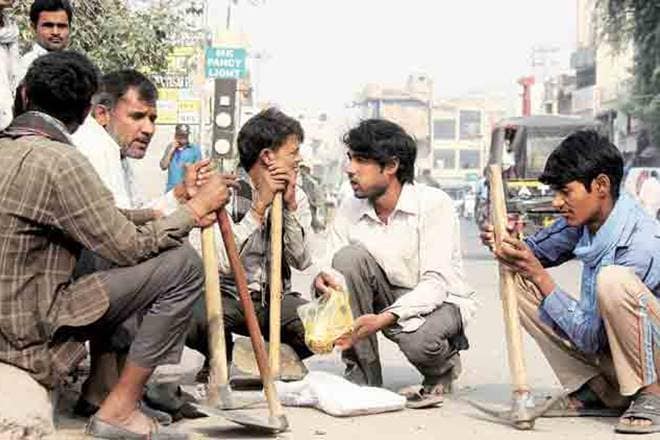The Code on Wages, 2019: The Opposition has come down heavily the Code on Wages, 2019 introduced in the Lok Sabha on Tuesday, terming it anti-worker. The legislation introduced by labour minister Santosh Gangwar leaves fixing of minimum wages to state governments instead of recommending a national minimum wage. The Code will undermine the long struggle of workers for remunerative wages, said former information and broadcasting minister Manish Tewari. Former Rajya Sabha MP and CPM Politburo member Tapan Sen called it a fraud on workers.
This is the second attempt by the government in the last two years to combine four labour laws for simplification and proper administration of labour welfare laws in the country. However, the move has come under criticism from the opposition parties that have accused the government of diluting the labour protection measures in the existing laws.
In 2017, Modi government introduced the Code on Wages, 2019 that was aimed at replacing four labour laws: (i) the Payment of Wages Act, 1936, (ii) the Minimum Wages Act, 1948, (iii) the Payment of Bonus Act, 1965, and (iv) the Equal Remuneration Act, 1976.
One of the main features of the new bill is that it proposes to fix a minimum national wage rate for workers and no state government will be able to set the minimum wage below the national floor rate in its jurisdiction.
ALSO READ: Income Tax deductions under section 80C cost Rs 75,000 crore to the government
Under the present system, states fix minimum wages to be paid by the employers. These minimum wages are usually fixed for unskilled workers, semi-skilled workers and skilled workers. These minimum wages vary heavily across the states.
However, former Rajya Sabha member and senior leader of Communist Party of India (Marxist) is not convinced with the provisions of the bill.
“Nowhere in the code of wages bill there is a compelling provision for the state governments to fix the wage in line with the national floor level minimum wage,” Tapan Sen told Financial Express Online adding that national minimum wage rate is not part of the bill that leaves it to the bureaucrats and ministers leaving it outside the scope of Parliament.
“This kind of advisories without any enforceability is nothing but a fraud on the workers and people who are actually creating GDP,” said Tapan Sen.
ALSO READ: Explained: Why Modi govt is keen to pass Dam Safety Bill and what it will change
Labour minister Santosh Gangwar also introduced the Occupational Safety, Health and Working Conditions Code, 2019 that aims to provide legislative framework to secure just and humane conditions for workers but these bills failed to cut much ice with the opposition parties.
“These bills are anti workers and anti every established canon of labour jurisprudence that has evolved out of the relentless struggles over the last three centuries,” Manish Tewari, Congress Lok Sabha member from Anandpur Sahib Lok Sabha seat in Punjab, told Financial Express Online.
However, his party has not taken a final view on the bills when it will come up for voting in the Lok Sabha.
“We will take a final call when the voting takes place,” said the former union minister for information and broadcasting in Manmohan Singh’s government.
ALSO READ: US China trade war: India may have lost the opportunity to capitalise on Dragon’s woes


